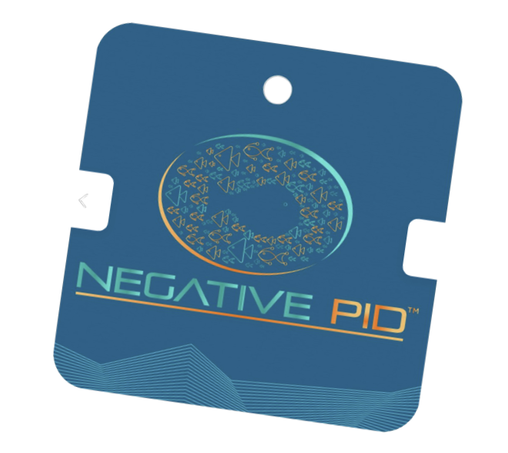Today, we were doing paperwork at the Policía Nacional 🚓, and they were nice enough to give us a little tour of their wall of fame. We also left with a little present! 🤩 🙏
We've hidden 100 special "Negative PID" tags with QR codes in public places across Canada and Europe. Find one, follow the steps, and win a FREE one-year subscription to our blog (valued at 240 CAD)! 🏆
Want to know how to play? All the details are in our latest blog post! 👇
https://negativepid.blog/join-our-tag-hunt/
Let the hunt begin! Who will be the first to find a tag? 👀
https://negativepid.blog/goodbye-canada/
#negativePID #behindTheScenes #BusinessPlans #Europe #NorthAmerica
Not sure if a traditional firewall is for you? Next-generation firewalls are like firewalls with superpowers. However, they come with challenges. The feature that allows most of their advanced functions is decryption, and that has lots of potential downsides. Knowing your environment, users, and use cases is key in deciding what your next firewall will be.
#firewalls #NGFW #howToChooseAFirewall #firewallSecurity #negativePID
Firewalls are our first line of defence against threats. However, choosing a good one for an organization can be daunting.
How do firewalls work? What's the difference between a stateless and a stateful firewall? What are next-generation firewalls? What points should you consider when purchasing a firewall?
All the basics are covered here.
#firewalls #security #HowTo #negativePID
https://negativepid.com/how-to-choose-a-firewall-for-your-business-the-basics/
How to choose a firewall for your business: the basics - Negative PID
If you have a computer, you have a firewall. Most people don’t even know it’s there and never need to touch it. What matters is that firewalls work in the background to keep us safe. However, businesses must carefully choose firewalls, as they are their networks’ first defence against internal and external threats. Let’s start […]
Should security features be planned in web applications at an early stage? We believe so.
In this third article on best practices for app developers, we conclude the discussion on how to prevent session hijacking with a series of recommendations for application design.
#bestpractices #appdesign #secureapps #appsecurity #sessionhijacking #negativepid
Best practices for web app developers: designing web apps with a secure architecture - Negative PID
A robust architecture is the foundation of a secure web application, and adhering to best practices is essential to mitigate risks effectively. In our previous articles, we have explored how to prevent application-level and network-level session hijacking attacks. Let’s now delve into design implementations for crafting a secure architecture for web applications. Changing the way […]
If your web apps use protocols like Telnet and FTP, it's time for an update!
Secure protocols go a long way in protecting your users and data from network-level session hijacking attacks.
In this article, we list the best practices to implement TLS and safer protocols in your app development projects.
#secureapps #appdevelopment #securitybestpractices #bestpractices #appsecurity #negativepid
Best practices for web app developers: preventing network-level session hijacking - Negative PID
In our previous article, we took a deep dive into the best practices to prevent application-level hijacking attacks. We’ll now see how to implement security measures for network-level session hijacking threats through the use of secure protocols. What is network-level session hijacking? Network-level session hijacking occurs when an unauthorized user intercepts and takes over a […]
Among all the types of phishing, vishing (aka Voice Phishing) is perhaps the most annoying. 1 in 3 Americans falls victim to it, setting a high success rate for phone scammers.
We have compiled a quick guide to recognize vishing, describe its tactics and classic ruses, and give you some good tips on how to recognize it and protect yourself.
#vishing #voicephishing #phonescams #socialengineering #reportabuse #nocalllists #negativepid
https://negativepid.com/recognizing-vishing-how-to-protect-yourself-from-telephone-based-scams/
Recognizing vishing: how to protect yourself from telephone-based scams - Negative PID
Have you ever received a phone call from a familiar company or institution that didn’t seem quite right? Maybe the conversation seemed odd, or the voice at the other end was a recording. In these cases, you should always trust your instincts. You might indeed have been the target of a phone scam or vishing. […]
The average car built after 2009 uses 100 microprocessors, 50 electronic units, 5 miles of wiring, and 100 million lines of code. More and more, we are driving "computers on wheels". So, as you access your computer to update it and keep it safe, should you be able to do the same for your car's?
Let us know what you think!
#carSecurity #carhacking #negativepid
https://negativepid.com/should-be-able-to-hack-into-your-car/
Should you be able to hack into your car? - Negative PID
More and more, cars are integrating electronics and computer systems to operate. It’s not only a matter of governing the mechanic components, but also to provide safety, comfort, and entertainment to its passengers. As a matter of fact, a car can be seen as a collection of computers with wheels attached. You trust your mechanic […]




